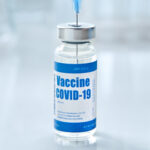EULAR 2023 (MILAN)—Rheumatoid arthritis (RA) is a disease that rheumatologists know well, but each year brings advances in diagnosis and management. At EULAR 2023, the session titled What Is New in Rheumatoid Arthritis? provided insights into the cutting edge of research and technology with respect to this rheumatic disease.

Dr. Aletaha
Daniel Aletaha, MD, MS, MBA, professor and head of the Division of Rheumatology, Medical University of Vienna, discussed the potential for preventing RA. According to EULAR, patients at risk of developing RA include those with joint symptoms of recent onset (less than one year in duration), metacarpophalangeal (MCP) joint involvement, morning stiffness lasting more than 60 minutes and experiencing the most severe symptoms in the mornings, and those with a first-degree relative who has RA. Physical exam features for those at risk of developing RA include difficulty making a fist and a positive squeeze test of MCP joints.
Pre-RA
Research into the prevention of RA takes an at-risk population and randomizes patients to either an intervention or placebo group, then follows participants for a period of time without treatment to observe if fulminant RA develops.
Dr. Aletaha discussed several studies of interventions in pre-RA, including SAVE, STIVEA, PROMPT, PRAIRI, TREAT EARLIER and STOP-RA.1-6 The majority of these studies have not shown any significant difference in intervention (e.g., glucocorticoids, hydroxychloroquine, methotrexate and rituximab) vs. placebo arms in preventing the development of RA.
One notable exception is the ARIAA study, an international, randomized, double-blind, placebo-controlled multi-center study of patients who are anti-citrullinated protein antibody (ACPA) positive and show signs of inflammation on magnetic resonance imaging (MRI).7 In this study, 100 patients were randomized to receive either 125 mg of subcutaneous abatacept weekly for six months or placebo, and were then observed for 12 months without treatment. The primary study end point was improvement in inflammation on MRI after six months. Secondary end points were progression to RA at six months and 18 months.
Improvement in inflammation on MRI was seen in 61% of patients in the abatacept group compared with 31% in the placebo group (P=0.0043). In addition, fewer patients in the abata- cept group progressed to RA after six months than in the placebo group (8.2% vs. 34.7%, P=0.0025). This held true at 18 months as well (35% vs. 57%, P=0.0421).
This study and others indicate the time point in the pre-RA window when an intervention is introduced, as well as which medication is being used as the intervention, may make a significant difference in the ability to prevent disease development.
After Diagnosis
Dr. Aletaha next discussed issues relevant to patients after the diagnosis of RA has been established. Much has been made of the findings related to the risks of major adverse cardiovascular events (MACE) and cancers in the ORAL Surveillance study.8,9 In this study, patients aged 50 and older with moderate to severe RA, one or more cardiac risk factors and inadequate response to methotrexate were divided into one of three clinical arms: 5 mg of tofacitinib given twice daily plus methotrexate; 10 mg of tofacitinib given twice daily plus methotrexate (Note: After the drug safety monitoring review, this dose was lowered to 5 mg given twice daily); or a tumor necrosis factor-α (TNFα) inhibitor plus methotrexate.
The study demonstrated that the risks of MACE and cancers were higher for the patients in the tofaci- tinib treatment groups than for those in the TNFα inhibitor group.
In a post-hoc analysis of the ORAL Surveillance study, Charles-Shoeman et al. found that among patients with- out a history of atherosclerotic cardio- vascular disease (ASCVD), MACE risk did not differ in patients treated with 5 mg of tofacitinib two times per day from the risk of patients on TNFα inhibitor treatment. The authors note their findings are limited by the exploratory nature of their study and low statistical power, but that any absolute risk excess is likely low.
Dr. Aletaha made several important statements on this topic: Many RA drugs help improve cardiovascular risk; findings of the ORAL Surveillance study differ from those of observational studies on this subject; and RA poses an intrinsic increased risk of cancer for patients with the condition. For all of these reasons, further study of Janus kinase (JAK) inhibitors is warranted and such studies may better inform rheumatologists of the true risks associated with these medications. On the subject of malignancy, Dr. Aletaha explained that EULAR has developed several points to consider with regard to initiating targeted therapies in patients with inflamma- tory arthritis and a history of cancer. These recommendations include:10
• Assess the individualized risk of cancer recurrence; Coordinate care with the oncology team;
• Avoid delays in the initiation of appropriate treatment for inflammatory arthritis;
• Use anti-cytokine biologic disease-modifying anti-rheumatic drugs (bDMARDs) in patients with a history of solid cancer and B cell-depleting therapy in patients with a history of lymphoma; and
• Using JAK inhibitors and abatacept with caution.
Under Investigation
Dr. Aletaha also summarized several therapeutics that are currently under investigation in RA:
• Peresolimab is a humanized immunoglobulin G1 monoclonal antibody that stimulates PD-1, a checkpoint inhibitor receptor, and may restore immune homeostasis;11
• Liposomal antagomiR-155-5p is an antagonist of miR-155-5p and, through this mechanism, may help restore impaired maturation of monocytes to anti- inflammatory macrophages;12 and
• Nanocatalytic treatment with Ru/ TiO2 is a catalytic nanoparticle that can produce oxygen and scavenge reactive oxygen species to reduce M1 macrophages and switch the M1 phenotype to the M2 phenotype.13 These and other medications are under development and review, and may be seen in European and U.S. markets in the future.
In Sum
According to Dr. Aletaha, the field of research on precision markers is very active, but use of these markers in clinical practice is not yet a reality. He noted that understanding the comorbidities that patients with RA have is highly relevant with respect to selecting appropriate therapy and understanding the likelihood that these patients may have a positive clinical response. He also explained that new Boolean-based criteria, endorsed by EULAR and the ACR, have been shown to help to improve agreement with index-based remission criteria and to classify more patients with RA as being in remission while predicting radiographic and functional outcomes for patients.14 Clearly, a great deal is new in RA, and as Dr. Aletaha pointed out, 2024 will likely lead to even more advances in our understanding and treatment of this serious disease.
Jason Liebowitz, MD, is an assistant professor of medicine in the Division of Rheumatology at Columbia University Vagelos College of Physicians and Surgeons, New York.
References
- Machold KP, Landewé R, Smolen JS, et al. The Stop Arthritis Very Early (SAVE) trial, an international multicentre, randomised, double-blind, placebo- controlled trial on glucocorticoids in very early arthritis [erratum: Ann Rheum Dis. 2011 Aug;70(8):1519]. Ann Rheum Dis. 2010 Mar;69(3):495–502.
- Verstappen SM, McCoy MJ, Roberts C, et al. Beneficial effects of a 3-week course of intramuscular glucocorticoid injections in patients with very early inflammatorypolyarthritis: Results of the STIVEA trial. Ann Rheum Dis. 2010 Mar;69(3):503–509.
- van Aken J, Heimans L, Gillet-van Dongen H, et al. Five-year outcomes of probable rheumatoid arthritis treated with methotrexate or placebo during the first year (the PROMPT study). Ann Rheum Dis. 2014 Feb;73(2):396–400.
- Gerlag DM, Safy M, Maijer KI, et al. Effects of B-cell directed therapy on the preclinical stage of rheumatoid arthritis: The PRAIRI study. Ann Rheum Dis. 2019 Feb;78(2):179–185.
- Niemantsverdriet E, Dakkak YJ, Burgers LE, et al. TREAT Early Arthralgia to Reverse or Limit Impending Exacerbation to Rheumatoid arthritis (TREAT EARLIER): A randomized, double-blind, placebo-controlled clinical trial protocol. Trials. 2020;21(1):862.
- Deane K, Striebich C, Feser M, et al. Hydroxychloroquine does not prevent the future development of rheumatoid arthritis in a population with baseline high levels of antibodies to citrullinated protein antigens and absence of inflammatory arthritis: Interim analysis of the StopRA trial [abstract]. Arthritis Rheumatol. 2022;74(suppl 9).
- Rech J, Kleyer A, Østergaard M, et al. Abatacept delays the development of RA-clinical results after 18 months from the randomized, placebo-controlled ARIAA study in RA-at risk patients [poster presentation POS0531]. Ann Rheum Dis. 2022;81:526–527.
- Ytterberg SR, Bhatt DL, Mikuls TR, et al. Cardiovascular and cancer risk with tofacitinib in rheumatoid arthritis. N Engl J Med. 2022 Jan 27;386(4):316–326.
- Charles-Schoeman C, Buch MH, Dougados M, et al. Risk of major adverse cardiovascular events with tofacitinib versus tumour necrosis factor inhibitors in patients with rheumatoid arthritis with or without a history of atherosclerotic cardiovascular disease: A post hoc analysis from ORAL Surveillance. Ann Rheum Dis. 2023;82(1):119–129.
- Smolen JS, Landewé RBM, Bergstra SA, et al. EULAR recommendations for the management of rheumatoid arthritis with synthetic and biological disease-modifying antirheumatic drugs: 2022 update. Ann Rheum Dis. 2023;82:3–18.
- Tuttle J, Drescher E, Simón-Campos JA, et al. A phase 2 trial of peresolimab for adults with rheumatoid arthritis. N Engl J Med. 2023 May 18;388(20):1853–1862. doi:10.1056/NEJMoa2209856
- Paoletti A, Bineta L, Catherine C, et al. Liposomal antagomir-155-5P restores anti-inflammatory macrophages and improves arthritis in pre-clinical models of rheumatoid arthritis [abstract OP0207]. Ann Rheum Dis. 2023;82:136–137.
- Huang S, Qiu L. Nanocatalytic treatment using RU@TIO2 for rheumatoid arthritis via macrophage re-polarization [abstract OP0205]. Ann Rheum Dis. 2023;82:136.
- Studenic P, Aletaha D, de Wit M, et al. American College of Rheumatology/EULAR remission criteria for rheumatoid arthritis: 2022 revision. Arthritis Rheumatol. 2023 Jan;75(1):15–22.

